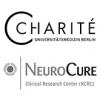25 April 2016
Simple Mind-Body Therapies Shown to Improve Subjective Cognitive Decline, a Pre-Clinical Stage of Alzheimer’s Disease
Lead investigator Kim Innes, PhD, Associate Professor in the Department of Epidemiology in the WVU School of Public Health, and her team have published a new study in the Journal of Alzheimer’s Disease. The article details findings from their recent study of adults with subjective cognitive decline (SCD), which suggest that the practice of two simple mind-body therapies may have multiple benefits for patients with preclinical memory loss.
22 April 2016
Problems finding your way around may be earliest sign of Alzheimer’s disease, study suggests
Long before Alzheimer’s disease can be diagnosed clinically, increasing difficulties building cognitive maps of new surroundings may herald the eventual clinical onset of the disorder, finds new research from Washington University in St. Louis. “These findings suggest that navigational tasks designed to assess a cognitive mapping strategy could represent a powerful new tool for detecting the very earliest Alzheimer’s disease-related changes in cognition,” said senior author Denise Head, associate professor of Psychological and Brain Sciences in Arts & Sciences.
12 April 2016
B-School Innovation Professor Discovers Pathway between Diabetes and Alzheimer’s Disease
In a new paper published by The Journal of Alzheimer’s Disease, Professor Melissa Schilling, a strategy and innovation expert at the NYU Stern School of Business, uncovers a surprising new connection between diabetes and Alzheimer’s disease: hyperinsulinemia, which is most often caused by prediabetes, early or undiagnosed diabetes, or obesity, is responsible for almost half of all cases of Alzheimer’s disease.
12 April 2016
Why do people with Alzheimer's stop recognizing their loved ones?
Alzheimer’s not only steals people’s memories but also their ability to recognize faces, which widens the gulf between people with this disease and their loved ones. A recent study has demonstrated that, beyond causing memory problems, Alzheimer’s disease also impairs visual face perception. This finding may help families better understand their loved one's inevitable difficulties and lead to new avenues to postpone this painful aspect of the disease. Research in this area by the team of Dr. Sven Joubert, PhD, a researcher at the Centre de recherche de l'Institut universitaire de gériatrie de Montréal of the CIUSSS du Centre-Sud-de-l’Île-de-Montréal and a professor with the Department of Psychology at Université de Montréal, has just been published in the Journal of Alzheimer’s Disease.
16 March 2016
Infrequent home computer use may be indicative of early cognitive decline
A new study sheds light on a powerful tool that may detect signs of Alzheimer’s disease before patients show any symptoms of cognitive decline: the home computer.
15 March 2016
A New Perspective on the Possible Cause of Alzheimer's Disease: Microbes
A landmark Editorial issued by 33 senior scientists and clinicians from a dozen countries across the world has been published in the highly regarded peer-reviewed journal, Journal of Alzheimer's Disease. This major call for action is based on substantial evidence indicating that some microbes – a specific virus and particular bacteria – are likely major causes of the disease.
15 March 2016
Omega-3 fatty acids shown to exert a positive effect on the aging brain
Researchers from Charité – Universitätsmedizin Berlin were able to show that omega-3 fatty acid supplementation improves memory function in humans. They studied the effects of supplementation with natural omega-3 fatty acids in healthy older adults over a period of six months. Results from the study, which show that supplementation leads to significant improvements in memory function, have been published in the current issue of the Journal of Alzheimer's Disease.
11 March 2016
Different Kinds of Physical Activity Shown to Improve Brain Volume and Cut Alzheimer’s Risk in Half
A new study shows that a variety of physical activities from walking to gardening and dancing can improve brain volume and cut the risk of Alzheimer’s disease by 50%. This research, conducted by investigators at UCLA Medical Center and the University of Pittsburgh, is the first to show that virtually any type of aerobic physical activity can improve brain structure and reduce Alzheimer’s risk. The study, funded by the National Institute of Aging, was published on March 11 in the Journal of Alzheimer’s Disease.
6 March 2016
Some Ethnicities have a Greater Chance of Developing Alzheimer’s Disease before Age 65
Prof PK Panegyres and Dr HY Chen from Neurodegenerative Disorders Research Pty Ltd (Perth, Western Australia) analysed statistics from the C-PATH online data repository (CODR) and concluded that “ethnicity may impact on Alzheimer’s disease through age of onset, co-morbidities, family history, ApoE gene status and cognitive change over time. The greater odds of early-onset Alzheimer’s disease among African Americans, Alaskans and Hawaiians suggest that some ethnicities may be at risk of Alzheimer’s disease at a younger age.
3 March 2016
Depressive symptoms and the risk of Alzheimer’s disease in mild cognitive impairment
According to a community-based longitudinal study in Japan, researchers found that depressive symptoms increased the risk of Alzheimer's disease (AD) in an amnestic mild cognitive impairment (aMCI) group, but not in a non-amnestic mild cognitive impairment (naMCI) group. Likewise, depressive symptoms increased the risk of aMCI but not naMCI in a cognitively normal group. Depressive symptoms might be a clue to finding prodromal AD in patients with a certain type of MCI.
















